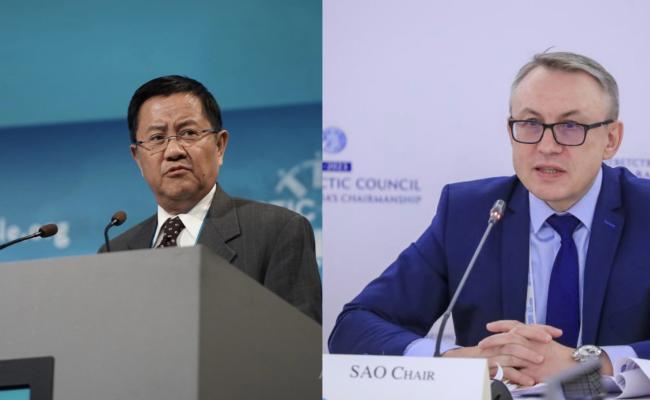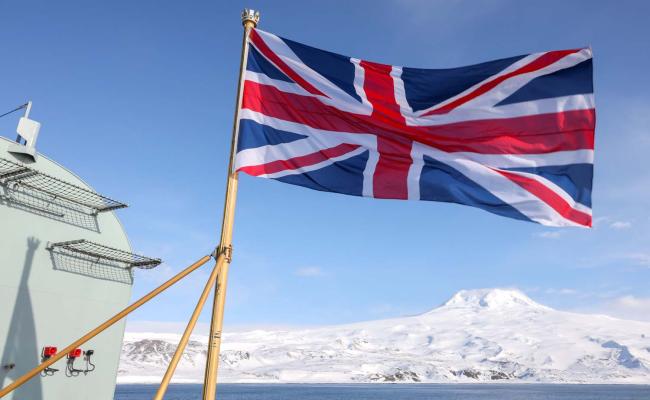Lords Detect a More Demanding Arctic – Urge Greater UK Engagement in the Region
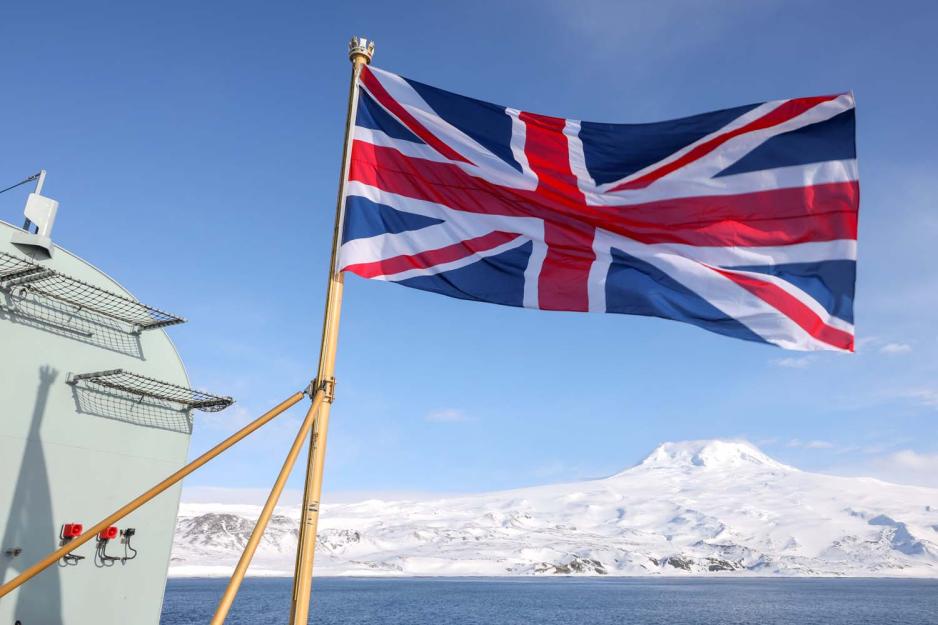
The International Relations and Defence Committee in the House of Lords, the second chamber of the UK Parliament, recently launched the report Our friends in the North: UK strategy towards the Arctic. In this, they evaluate British Arctic policy, based on travels to Norway and Finland, among other things. Here is the British aircraft carrie HMS Prince Wales at the Norwegian polar island Jan Mayen in the spring of 2022. (Photo: the British Navy)
"The Arctic is critical to UK interests. We need to prepare for scenarios in which the Arctic becomes much more contested and subject to conflict,” says Lord Henry Ashton, Chair of the House of Lords International Relations and Defence Committee.
The International Relations and Defence Committee of the British House of Lords scrutinises the British Arctic policy in a new report.
In this, the lords especially encourage the British government to prepare for an Arctic region that is becoming more vulnerable to geopolitical tensions. They point to how climate change is "opening up and internationalizing the region" while the security challenges are simultaneously becoming more complex.
“At the moment, UK policy towards the Arctic is well-calibrated, but we need to prepare for scenarios in which the Arctic becomes much more contested and subject to conflict,” says Lord Henry Ashton, Chair of the Committee.
“Russia is the most acute threat to UK and European security, and the Arctic plays a vital role in Russian military doctrine. It is therefore vital that we have a clear-eyed understanding of Russia’s intentions and strategy in the region.”
Lord Ashton emphasizes the region's significance for the UK.
"The Arctic is critical to UK interests – developments there directly impact on our environment, security, and energy supply. It is imperative the Government has a clear sense of how the Arctic fits into the UK’s broader security and foreign policy interests in Northern Europe and beyond,” he points out.
This appointment would send a strong signal regarding the UK’s commitment to the region.
Be more on the ball
The committee also calls for more active involvement from the government in Arctic forums – and refers to how the UK's ability to influence developments in the region relies on strong diplomatic efforts.
“We are concerned that the region is not receiving sufficient ministerial attention. During our visits to Norway and Finland, Arctic stakeholders told us that there was limited UK ministerial participation in Arctic multilateral meetings, whereas ministers from the Scottish Government regularly attended. We call on the Government to increase the participation of UK Government ministers at Arctic meetings,” writes the lords.
By extension, they also believe that a British Arctic Ambassador should be appointed.
“We reiterate the recommendation of previous inquiries that the UK should establish the position of Arctic Ambassador or Arctic Envoy, who would assist the Minister for the Polar Regions in co-ordinating a cross-government approach to the Arctic. This appointment would send a strong signal regarding the UK’s commitment to the region.”
Russia in the grey zone
The Russian challenge in the Arctic is a central topic of the report.
Russia's military losses in Ukraine – as well as Finland and Sweden's NATO accession – will increase the region's significance for the Russian leadership, the lords believe.
“While it is not in Russia’s interest to start a conventional conflict in the Arctic, sub-threshold activity and accidental escalation represent significant risks to the region’s security,” they write and continue:
“Russian sub-threshold activity in the High North is a significant and growing threat. The UK and its allies should prepare contingency plans to detect, deter, and respond to hybrid and ‘grey-zone activities,’ and consult on how to best do this in situations when public attribution is not possible.”
Specifically, reference is made to GPS jamming, maritime sabotage, cyber attacks, and information warfare, as well as military exercises that simulate attacks on Russia’s neighbors.
The UK and its allies should ensure that their actions are predictable.
Risk of unintentional escalation
The lords highlight the risk of accidents or misunderstandings leading to unintentional escalation in more militarized and tense Arctic areas:
“The risk of unintentional escalation in the Arctic following an accident has risen as a result of increasing maritime activity in the region and the sharp deterioration in relations between Russia and the West. The UK must continue to work closely with its allies to maintain good situational awareness. It should co-operate closely with Arctic allies on intelligence gathering and sharing on Russian activities in the High North.”
“To avoid unintentional escalation, the UK and its allies should ensure their actions are predictable, and there are clear contingency plans in place in the event of an incident.”
Moreover, the committee refers to the Norwegian-Russian border cooperation and the contact line between the Norwegian Joint Headquarters and the Northern Fleet, among other things.
“The UK’s Arctic allies have continued to work with Russia in areas such as search and rescue and military-to-military communication for the purpose of deconfliction, emergency response, and reassurance. It is in the UK’s interest that these channels of communication and co-operation are maintained,” say the Lords.
China can leverage the dependence to establish a military presence in the Arctic.
China in focus
The report emphasizes that the UK must be particularly vigilant, not just toward Russia, but also toward China's strategy and intentions in the Arctic.
“It is essential that the UK Government pays close attention to Sino-Russian collaboration in the Arctic.”
“Russia’s war in Ukraine has made Russia more economically dependent on China, and this could lead to closer Sino-Russian co-operation in the Arctic. UK scenario planning will need to consider the possibility that China could leverage this dependence in the future to establish a military presence in the Arctic. This would represent a significant strategic challenge to the West.”
So far, Beijing seems to operate within the existing framework for Arctic governance and management, but this can change quickly, recognizes the committee.
In the meantime, the UK should continue cooperating with China on scientific research and climate issues regarding the Arctic while also being alert to possible military exploitation of research activities, reads a recommendation.
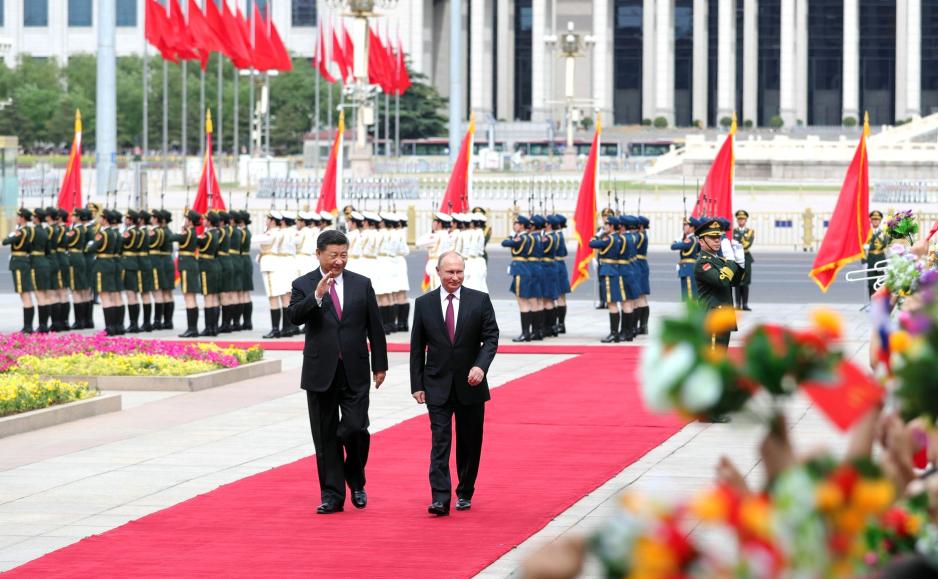
The British lords point to how China can have a greater footprint in the Arctic as Russia turns east to cover its investment needs. Here are China's President Xi Jinping and Russia's President Vladimir Putin. (Photo: Kremlin.ru)
The concurrency problem
With regard to defense and deterrence in the Arctic and the High North, the International Relations and Defence Committee points out that the UK plays an important role – and is considered a key partner by its Nordic allies.
The UK leads the rapid reaction force Joint Expeditionary Force – which includes the Nordic and Baltic countries as well as the Netherlands. The country is also a member of the Northern European security and defense forum Northern Group, as well as an observer state in the Arctic Security Forces Roundtable – which brings together high-ranking military leaders in the Arctic states.
The UK was also quick to provide security guarantees to Finland and Sweden when they wanted to apply for NATO membership.
“We welcome the UK Government’s increased defense commitments to the region. We are concerned, however, that the UK has insufficient key military assets, such as submarines, maritime patrol, or airborne early warning aircraft, to support this increased focus on the Arctic alongside the UK’s growing interest in other regions, such as the Indo-Pacific,” the lords point out.
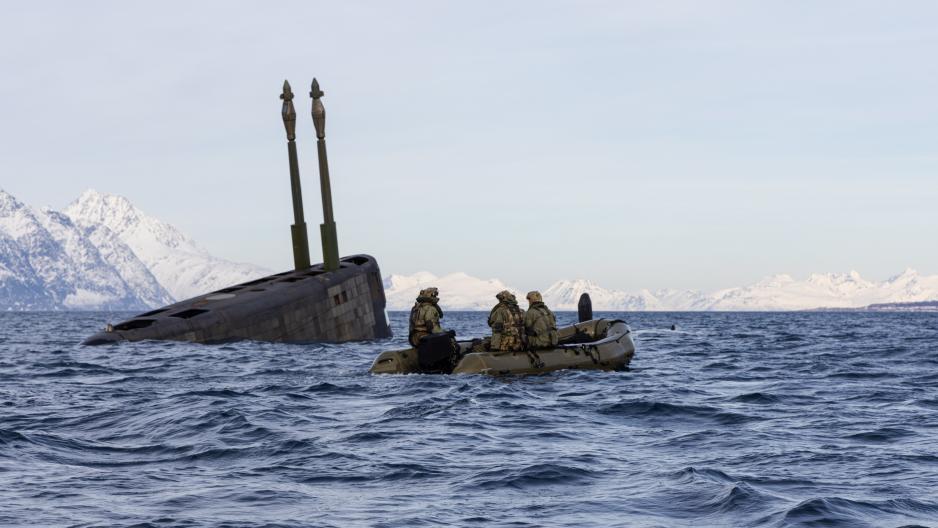
The British lords express concern about whether the UK has sufficient available military capabilities, such as submarines, to meet the ambitions of a "meaningful security presence" in the High North and other parts of the world. Here, the British submarine HMS Ambush trains in northern Norwegian waters during the exercise Cold Response 2022. (Photo: the British Navy)
By extension, the International Relations and Defence Committee reminds that the region offers a very challenging operational environment and believes that it is crucial to maintain regular cold weather training.
“It is essential that the UK continues to train sufficiently with its NATO and Nordic allies to maintain capabilities and signal commitment to defending the region. The UK Government should continue to enhance capabilities through support for the Joint Expeditionary Force, the Northern Group and the Arctic Security Forces Roundtable.”
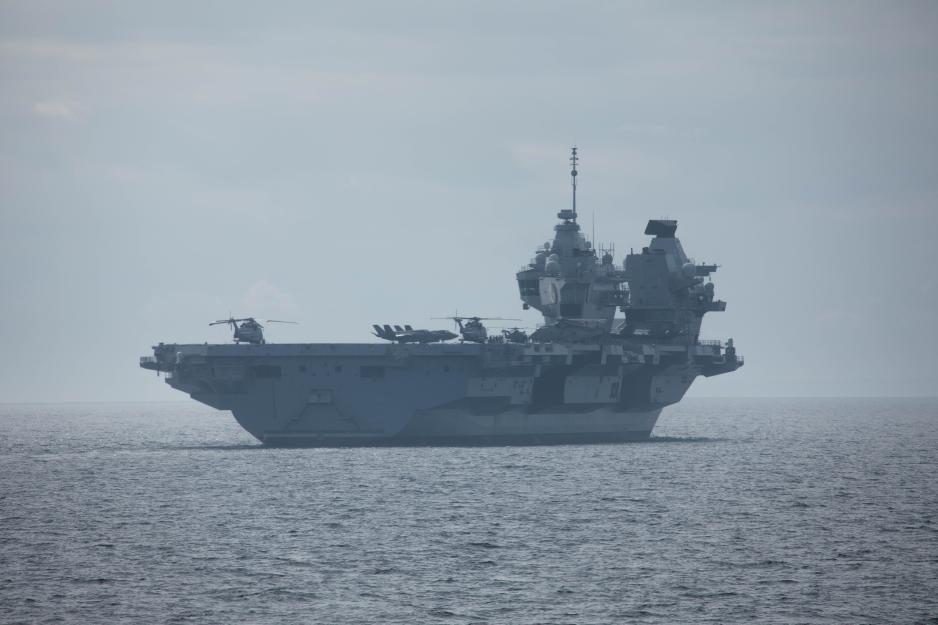
Earlier this fall, the British aircraft carrier HMS Queen Elizabeth led an international carrier strike group that operated in the North Sea and Northern Norwegian waters – partly within the Joint Expeditionary Force framework. The group also included vessels from Norway, the Netherlands, Germany, Belgium, and France. Military aircraft from the UK, Norway, USA, Finland, and Sweden were also involved. (Photo: Peder Emanuel Clark Utvik/the Norwegian Armed Forces)
In the face of increased maritime traffic
The report also addresses the risks and opportunities in increased economic activity and shipping in Arctic waters in light of the rapid warming of the region.
"As the Arctic's nearest neighbor, the UK has a great interest in protecting fragile ecosystems and ensuring that all economic activities are conducted sustainably. The expected expansion of Arctic shipping will especially increase the risk of accidents and pollution," says Lord Ashton.
He and the committee's other members encourage the British government to cooperate with Arctic allies in strengthening search and rescue capabilities – and take on a leading role in negotiating a new polar code for regulating Arctic shipping.
"Strengthening the shipping regulation and ensuring adequate search and rescue infrastructure requires close international cooperation with Arctic states, industry, and other interested parties. The international maritime organization's headquarters is in London, and the UK is uniquely positioned to lead this effort," states Ashton.
Fish, oil, and gas
Fisheries and sustainable management of fish stocks in the Arctic is of direct interest to the UK, maintains the lords, and makes the following recommendations:
"In partnership with the Arctic states, the UK should continue to advocate for the protecting Arctic fish stocks and the establishment of protected marine areas, in partnership with the Arctic states," they write and continue:
"We strongly encourage the government to join the agreement again to prevent unregulates fishery in the international part of the Arctic Ocean [previously party through EU, ed. note]. In the meantime, and as a signal of its commitment, the UK should issue a unilateral statement that it will comply with the agreement while pending accession."
The lords also put an environmental perspective on the Norwegian petroleum industry in the North, of which the Brits and others are customers:
"In the short term, the UK's and the EU's demand for Norwegian oil and gas will likely grow and create pressure to increase production, including offshore in the Arctic. This will entail a greater environmental and safety risk."
"We acknowledge that Norway has an extensive framework in place to respond to an oil spill emergency. Nevertheless, the UK government should continue to push for high environmental standards and the protection of the Arctic marine environment by contributing to scientific research and through continued participation in the Arctic Council Working Group on the Protection of the Arctic Marine Environment (PAME)."



